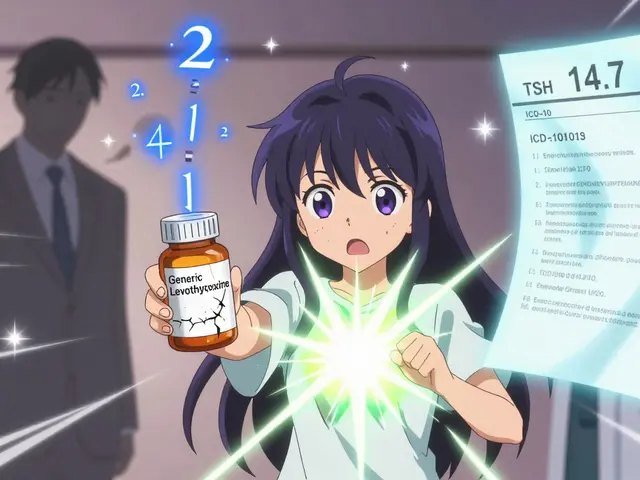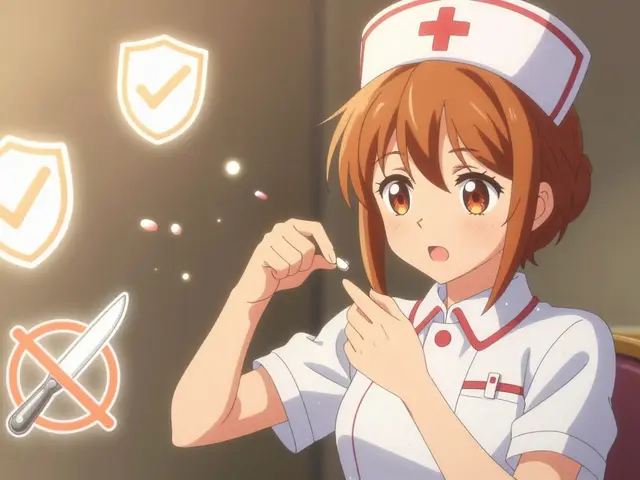Heart Health: Practical Tips, Meds, and Risks
Your heart affects everything you do. Small daily habits, medicines you take, and other health problems all change your heart risk. This tag gathers clear, practical posts about heart links, drug safety, and things you can do right now to protect your heart.
High blood pressure, high cholesterol, smoking, and excess weight are top drivers of heart disease. You can lower risk by moving more, cutting back on salt and added sugar, and choosing whole foods instead of processed ones. Even two brisk 20 minute walks most days helps blood pressure and mood. If weight is a concern, newer medications like semaglutide can help with weight loss and improve liver and metabolic markers — which often connects back to heart risk.
Many chronic diseases change heart risk. For example, COPD and heart disease often occur together, so shortness of breath could be from lungs, the heart, or both. Stroke and dementia also share vascular causes; preventing strokes helps protect thinking later in life. If you have any chronic condition, ask your clinician how it affects your heart.
Medications and interactions
Some drugs raise heart concerns. Macrolide antibiotics such as azithromycin (Zithromax) and clarithromycin (Biaxin) can affect heart rhythm in people with other risk factors. Chemotherapy or hormone drugs like anastrozole can change metabolism and weight, indirectly affecting the heart. Always tell prescribers about other meds, supplements, and heart conditions. If you buy meds online, use trusted pharmacies and check licensing — counterfeit drugs can be dangerous.
For many heart problems, medication is lifesaving. Statins lower cholesterol and reduce heart attacks. Blood pressure meds cut stroke and heart failure risk. But every medicine has tradeoffs. Keep an up-to-date list, ask about interactions, and report new symptoms like palpitations, chest pain, fainting, or severe lightheadedness.
Everyday steps to protect your heart
Get regular checks: blood pressure, cholesterol, blood sugar, and weight. Quit smoking — the benefits start within weeks. Move daily and aim for steady sleep. Cut added sugars and limit alcohol. If you’re on medication, take it as prescribed and ask your pharmacist about side effects that matter for the heart.
Know red flags: sudden chest pressure, shortness of breath at rest, sudden weakness, or fainting need urgent care. For less urgent worries like new swelling in the legs, palpitations, or increased breathlessness, contact your provider promptly.
This tag collects practical, readable articles that explain drug choices, risks tied to other conditions, and sensible lifestyle moves you can use now. Browse pieces on COPD and heart links, antibiotics and heart rhythm issues, weight drugs that affect cardiovascular risk, and tips for buying meds safely online.
Start with a simple plan: check numbers, fix one habit, and review meds. Ask your doctor about cholesterol targets and whether aspirin or other preventive drugs fit you. If you already take medications, schedule an annual medication review. Read the linked articles here to learn specific drug risks and safe alternatives.
Start small, stay consistent, and ask questions today.
Calanus Oil: Unlock Its Power for Truly Better Health
Curious about a new supplement that could level up your health game? Calanus oil is making a splash for its unique mix of omega-3s and nutrients you won’t find in fish or krill oil. This article explores where it comes from, how it works in your body, and why it might be a smart choice even for picky eaters (like my son Silas). I’ll break down science in everyday words so you actually know what you’re taking and why it matters. Plus, I’ll share real tips for making Calanus oil part of your daily routine.
About
Nutrition and Supplements
Latest Posts


Generic Drug Patents: How Exclusivity Periods Vary by Country
By Marcel Kornblum Dec 22, 2025

Insurance Appeals: Fighting Denials When a Generic Medication Doesn't Work
By Marcel Kornblum Dec 27, 2025

How to Avoid Contamination When Splitting or Crushing Pills
By Marcel Kornblum Feb 19, 2026

